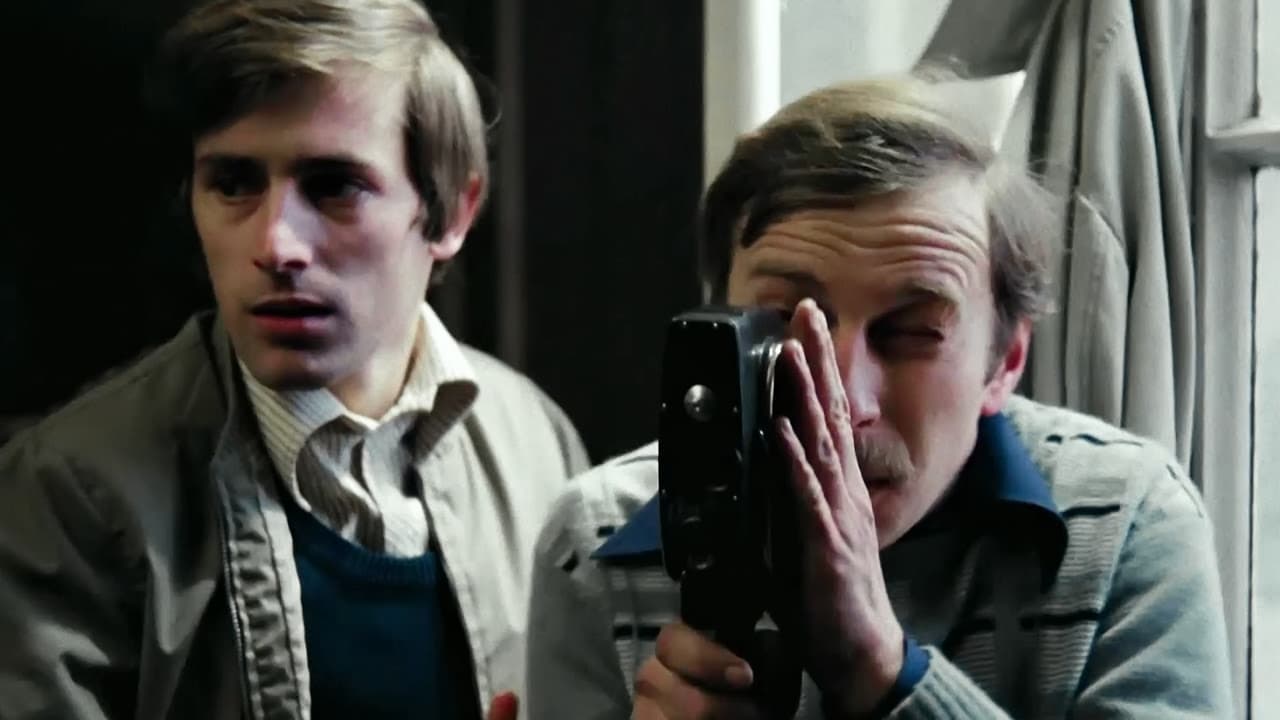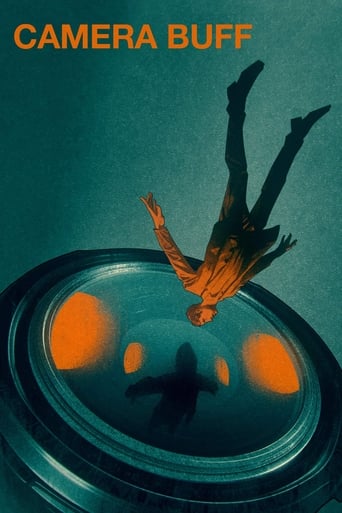

An innocent enough decision. Filip (Jerzy Stuhr) buys a camera to film his new daughter. It costs two months salary and it makes him a celebrity of sorts as he is the only one in town that has one.Now, his boss wants him to film the 25th anniversary celebration of the company. He really gets into filming and soon runs headlong into "rules." Of course, you have rules in a communist country. His wife is not too excited about his new hobby, but he soon gets his film entered into a film festival.Soon, like all who truly love film, Filip is attending screenings, talking to directors, and reading film magazines to improve his craft. But, more and more his wife is displeased, and his boss is cooling to the idea as he moves from filming the company to social statements.His desire for tranquility gives way to a desire for fame and art at the cost of his wife and family.He also discovers the unintended consequences of reporting the truth. In the end he turns the camera on himself as he realizes he had everything in the beginning and lost it all.A fascinating look at real cinema and finding what you want.
... View MoreI think there are only two truly great films about film making. One is Fellini's "eight and a half" and the other is this. We witness the transformation of a man from factory worker into artist. All achieved through the use of his camera and more specifically, the things he sees through the camera's lens. Kieslowski is clearly telling a story close to his heart here and shows the audience both the joy and freedom art can bring but also more tellingly, the obsession that can overtake ones life.The performances are great and the film, in my opinion, is given further impact due to the political undertones that are unavoidable.Kieslowski even seems to be condoning censorship by pointing out that when it occurs, it forces film makers to find ways around it and produce superior work as a consequence.Not a perfect film by far but a film that points the way to a career that would continue to rise
... View MoreAh for the love of film In 2006, I was one internet flight ticket transaction click away from moving to the area of Poland for the duration, but didn't. The "good" reason being is that I suffered some seriously grave trepidation over the fact that I would need to have two months salary in the bank before I'd EVER raise enough capital to buy an 8 mm motion picture camera. And this was in 2006. Sadly, these hypertensive concerns about finances low, all sleepless nights over equipment I don't have, and from where in the heck is the next camera going to come turned out to be relative in the scope of things in a sick and cyclical sense- and after interfacing with the characters of Kyrstof Kieslowski's incredibly moving Humanist Dark-Dramity, Camera Buff, for an hour and half, I'm just now harboring more than a few serious regrets about not actually abandoning the competitive, spiraling nightmare that is Western Life when I had the chance.Camera Buff is a wonderful story about a factory worker Filip (Jerzy Stuhr); a man who, in his thirties, begins to see life anew through the view finder of a small gauge movie camera. Originally purchased for "two months salary," which "pissed his wife off" to document his newborn daughter's first few steps, the 8 mm camera is quickly realized as something more useful than just a device for making home-movies. The narrative's tension is organized specifically around the reaction to the films of the institutional power structures and forces around Filip that essentially commissioned, financed, and instigated the films themselves along with Filip's newly discovered and unyielding passion for creating them as he sees fit.If you view the Kino Video DVD release of this film, perhaps even more profoundly affecting than the feature as an augury of hope for the human race is the sixteen minute black and white documentary entitled Talking Heads in which Kielowski conducts helter-skleter a multitude of fifteen second interviews about "who you are" and "what you want" with Polish citizens, age zero to one-hundred, across all walks of life starting at the year 1979 with a little gurgling baby. In all, it's wonderful material and has me seeking out more Kieslowski.
... View MoreHere's another example of critics' comments on the back of a VHS box being very misleading to us unsuspecting buyers. Comments on the video box made this movie sound fascinating, a big visual treat and an interesting story with a suspenseful finish.. Sadly, it was none of those things.By the way, for English-speaker viewers, this film is called "Camera Buff."In truth, it was very boring film with unlikeable characters giving you nobody to root for or care about. The man character is a nerd who would rather watch others than do anything with his life.This won the grand prize at the Moscow Film Festival, which shows you how bad things still were in Russia in the early '90s. I know things have gotten better.
... View More